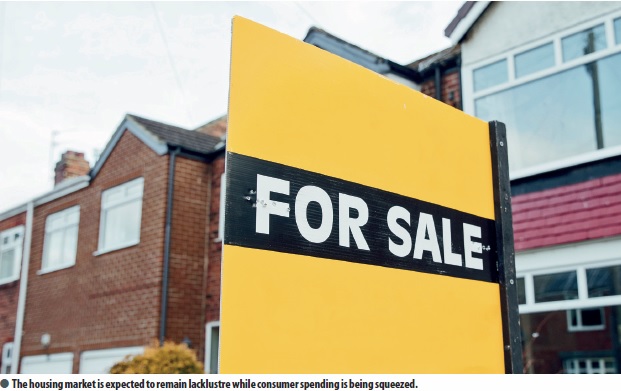The Nationwide reported that house prices rose 0.5% month-on-month in June, after falling in three of the previous four months.
Nevertheless, house prices were still only flat quarter-on-quarter in the second quarter, which was the first time prices had not risen on a quarterly basis since Q3 2012. Annual house price inflation dropped to a five-year low of 2% in June.
June’s 0.5% rise in house prices follows UK Finance reporting that mortgage approvals for house purchases rose to a four-month high in May. This suggests that the housing market could be edging off its lows. However, housing market activity is still relatively limited and finding it hard to gain traction amid challenging conditions.
A press release from EY says the consultancy suspects that any meaningful housing market upturn will remain elusive over the coming months with gains of only 2% during 2018 and no more than 3% in 2019.
EY says that the housing market is expected to remain lacklustre as the extended squeeze on consumer purchasing power only gradually eases, confidence is relatively fragile and caution persists over engaging in major transactions. Potential house buyers may also be concerned that they are likely to face further interest rate hikes over the coming months. The company believes that the Bank of England is more likely than not to raise interest rates from 0.50% to 0.75% in August – although it could be delayed until November.
The downside for house prices is being limited by a shortage of houses for sale. High and currently rising employment is also supportive for the housing market while mortgage interest rates are at historically low levels.
Howard Archer, Chief Economic Advisor to the EY ITEM Club, commented: “The abolition of stamp duty for first time buyers for properties costing up to £300,000 (and on the first £300,000 for properties costing up to £500,000) in last November’s Budget may provide some limited support to housing market activity and prices. However, even if successful, the Chancellor’s measures to boost house building in the Budget will take time to have a significant effect so are unlikely to markedly influence house prices in the near term at least.”